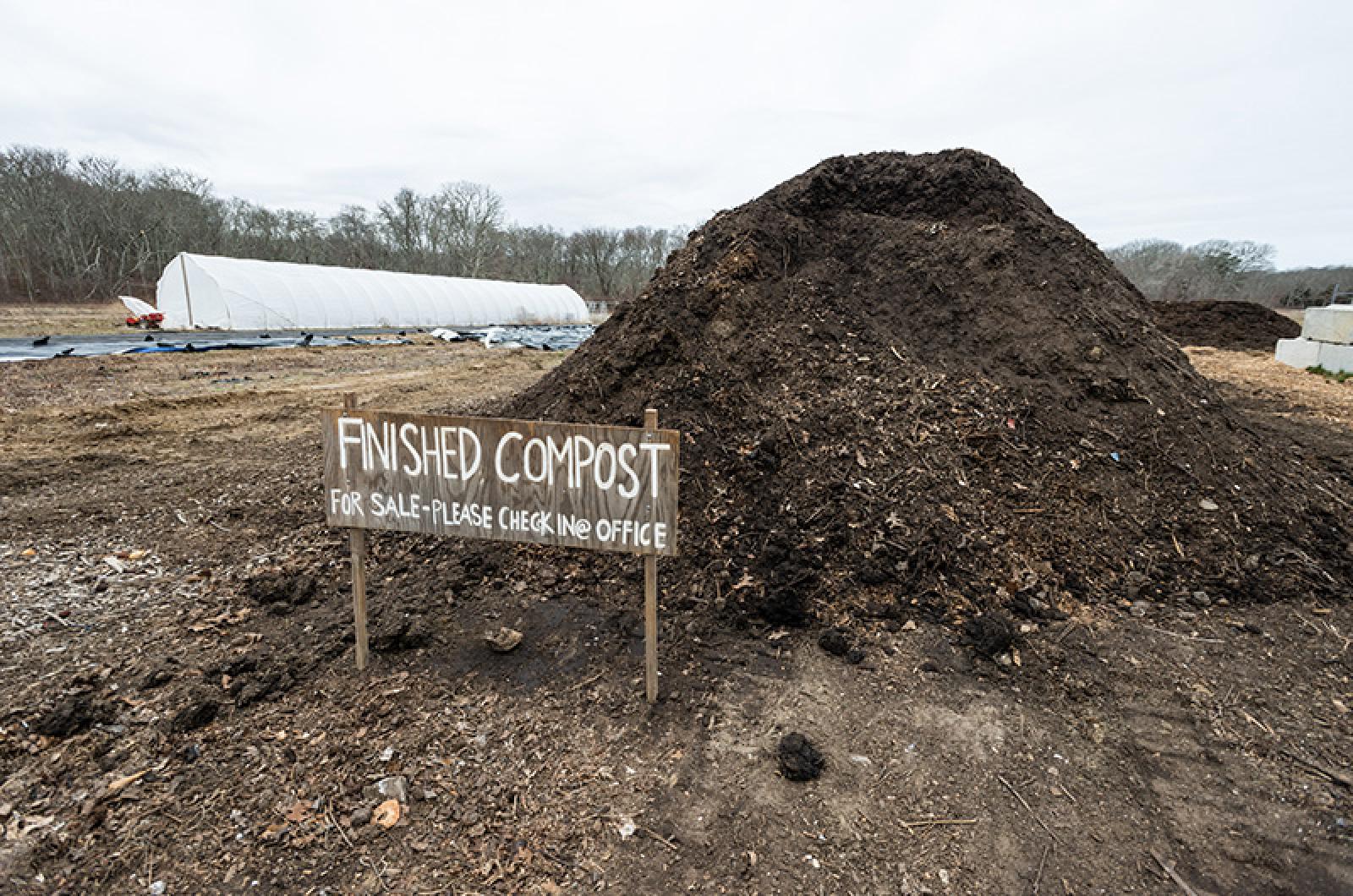Many of us have become committed to separating our food waste from our trash. This is so important, to reduce the amount of waste that goes off-Island, reduce greenhouse gas emissions and create more nutrient-rich compost for our Island soils. Together we have redirected over three million pounds of food from the waste stream over the past eight years, and Island Grown Initiative (IGI) is proud to have been able to serve as the pilot location for community composting.
The IGI site was always intended to be a pilot location, with the intention that other permanent sites would follow. Solid waste handling is a municipal responsibility, and the Organics Recovery Committee has been working to secure municipal and other alternate locations for years now. Finally, with the pilot equipment no longer operable and the pilot at the IGI farm coming to a close, a permanent location that can handle three times the volume of food waste that we have been able to process at our farm is in sight.
Unfortunately, we have entered a period of pause between when the pilot ended and when the new, permanent solutions for food waste processing can be put in place. Many people are working hard to make this hiatus as brief as possible, including the Organics Recovery Committee, IGI and the Martha’s Vineyard Vision Fellowship.
While we wait for permanent food processing facilities to be established on the Island, there are steps we can all take to continue reducing the amount of food in the waste stream.
1) Advocate. Solid waste handling in Massachusetts is a municipal responsibility. Reach out to your town administrators and select board members and let them know that you would like to be able to bring your separated food scraps to your local transfer station for processing. Encourage them to take action on this today.
2) Reduce food waste at home. Make sure you are throwing away as little food as possible. There are lots of great tips online on how to reduce food waste at home, or order a copy of the Waste-Free Kitchen Handbook (ideally from a local bookstore).
3) Buy a home composting unit. Consider investing in a free-standing compost tumbler or a countertop composting unit. Some of these are expensive, but if something like this could be a possibility for you, consider investing in one with a neighbor or a few neighbors to reduce the per-household cost and build community around neighborhood food waste reduction.
4) Take a course in how to compost effectively at home with Roxanne Kapitan. The Vision Fellowship is sponsoring a series of three free workshops this fall, the first taking place at the IGI Community Garden on Sept. 21. Pre-registration is required; sign up through the IGI website, igimv.org.
5) Become a compost educator. There is an opportunity for up to three Islanders to become community compost educators, by attending this fall’s classes with Roxanne, helping co-lead the final class alongside her and continuing with her in a mentorship capacity. This will help us grow the number of people on the Island who can learn how to compost effectively at home. If you are interested in becoming a community compost educator, please reach out to Roxanne at gardenwisdommv@gmail.com.
6) Try vermicomposting. Look into vermicomposting, or composting with worms. This can be done on a small scale at home, and is inexpensive and effective. We do worm composting in many of our schools and it is pretty remarkable!
7) Stay in touch with the Organics Recovery Committee to be apprised of next steps in the efforts to create permanent food waste handling solutions on the Island, mvtabletofarm.com.
Thank you for your commitment to reducing food waste in our community. Permanent solutions are on the horizon. Let’s keep working together to make them a reality.
Noli Taylor is the co-executive director of Island Grown Initiative. She lives in Aquinnah.







Comments
Comment policy »